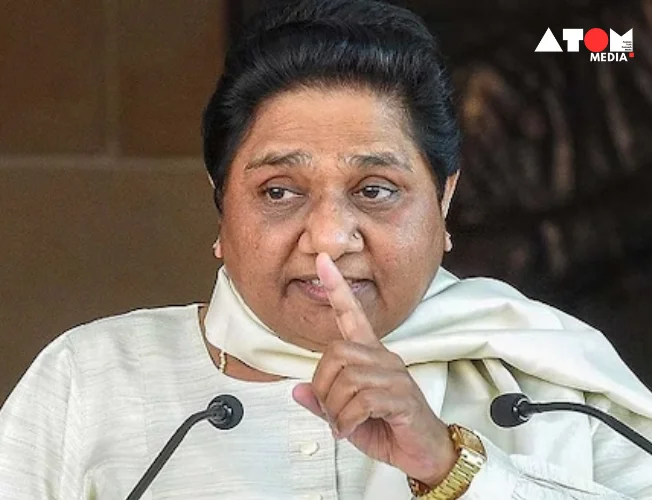BJP’s Performance in Uttar Pradesh
In the most recent Lok Sabha election, the BJP secured 240 seats, which was much less than the 370 seats it aspired for and a decrease from the 303 seats gained in 2019. Despite this reduction, the BJP still received enough support from its NDA partners’ 53 seats to establish a government for the third time. However, the outcome may have been very different if Mayawati, the head of the Bahujan Samaj Party (BSP), had joined the INDIA group.
Mayawati’s Impact
A substantial number of the BJP’s lost seats came from Uttar Pradesh, where the party has been strong since the 2014 ‘Modi wave’. In the 2019 elections, the BJP gained 62 seats in Uttar Pradesh with nearly half of the vote, and its ally, the Apna Dal (Sonelal), added two seats to the total. This year, the BJP’s seat count in the state fell to 33, with its vote share down to 41.3%.
BSP’s Role in the Elections
The BSP ran for 79 seats in Uttar Pradesh but did not win any. Despite this, the BSP received 9.4% of the vote. The key element is that in 16 seats won by the BJP or its allies, the BSP’s vote share exceeded the winning margin. If Mayawati had sided with the opposition, the BJP’s seat count may have been dramatically lowered. The 16 most important seats are in Akbarpur, Aligarh, Amroha, Bansgaon, Bhadohi, Bijnor, Deoria, Farrukhabad, Fatehpur Sikri, Hardoi, Meerut, Mirzapur, Misrikh, Phulpur, Shahjahanpur, and Unnao. The BJP won 14 of these seats, with the Apna Dal (Sonelal) taking two.
Close Contests
Several of these constituencies had very tight margins of victory. For example, in Bansgaon, Farrukhabad, and Phulpur, the winning margins were fewer than 5,000 votes, while BSP candidates won more than 64,000, 45,000, and 82,000 votes, respectively. In Meerut, the BJP candidate won by 10,585, while the BSP received 87,025 votes. In Bhadohi, where a Trinamool candidate was supported by the Samajwadi Party (SP), the BJP won by 44,000 votes against the BSP’s approximately 155,000 votes.
Potential Impact on BJP’s Majority
Had the INDIA bloc managed to secure those 16 seats, they would have reached 248 seats. Although not enough to form the government, this would have highlighted the crucial role of the “kingmakers” – Chandrababu Naidu’s Telugu Desam Party (TDP) and Nitish Kumar’s Janata Dal (United) (JDU), who together won 28 seats (16 and 12 respectively). Without these 28 seats, the BJP coalition would be left with 265 seats, insufficient for forming a government. This would have prevented Narendra Modi from being sworn in as Prime Minister for a historic third term.
BJP’s Strategic Moves
Recognizing the importance of securing the support of Naidu and Kumar, Narendra Modi mentioned them in his victory speech and planned for them to accompany him when meeting President Droupadi Murmu to stake claim to form the government. Although the meeting did not occur, sources confirmed that the BJP secured written letters of support from both leaders, ensuring their commitment to the coalition. Modi is now set to be sworn in as Prime Minister this weekend, joining Jawaharlal Nehru as the only Prime Ministers to serve three consecutive terms.
Opposition’s Response
In response, the opposition met in Delhi to explore measures for reaching out to Naidu and Kumar in an effort to flip those 28 seats. While switching these seats would prevent the INDIA bloc from forming the government, it would jeopardize the BJP’s stability and endanger its control.
Read more: Marketing News, Advertising News, PR and Finance News, Digital News





